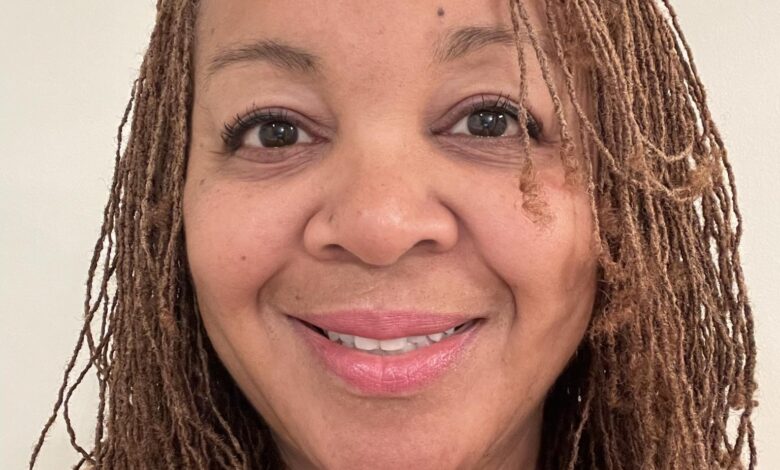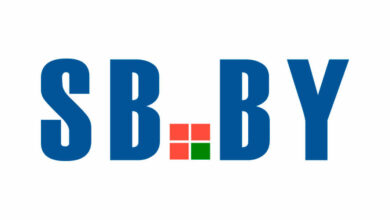The war on ‘woke’ – damaging to tech entrepreneurship

It’s an open secret that diversity and entrepreneurship do not make easy bedfellows.You only have to look at the statistics to see: for example, last year Black founders received a mere 0.5% of all US venture capital funding, according to TechCrunch. This figure contrasts with the fact that Black people make up 13.6% of the US population
Female entrepreneurs fared a bit better. All-women founding teams gained 1.8% of the total, down from 2.1% in 2022. This figure rose to 26.1% if there was a male founder in the mix though.
The funding gap is similar in the UK. For example, research from Extend Ventures revealed that only 0.24% of total available financing went to the country’s Black founders over the last decade.
Female-led businesses, on the other hand, secured 3.5% of all equity funding last year, according to data from information services provider Beauhurst. Male-led teams received 85.1% of the pie, with mixed teams obtaining 11.4%. By way of contrast, female-led start-ups make up 10% of the total, 75% are male-led and 15% are mixed gender.
The impact of the war on ‘woke’
So, the big question today is what impact the now infamous war on ‘woke’ is having on this already far from ideal situation for minority group founders?
Zena Martin is a US-based Diversity, Equity, Inclusion and Belonging (DEIB) expert. She points out that today’s culture wars are making themselves felt not just in academia, following the US Supreme Court ban on the use of affirmative action policies in college admissions. The impact is also being felt in the business world too.
This situation is evidenced by Republican lawmakers in more than 30 states having either introduced or passed more than 100 Bills to either regulate or restrict DEIB initiatives.
At the same time, conservative groups are filing complaints and lawsuits against minority-owned businesses with DEIB programs for allegedly being ‘racist’. Equally under pressure are investors, such as the Fearless Fund, which are being sued for providing grants exclusively for members of historically disadvantaged groups. Martin says:
At the moment, it can feel like a bit of a losing battle as we’re taking steps backward with the ‘war on woke’ following really intense efforts in all aspects of life after the murder of George Floyd. Weaponising is a big thing whether we’re talking about words, phrases, or actions – and suddenly DEIB is a dirty word.
A systemic problem
Emma Obanye, Chief Executive of OneTech, a UK-based non-profit organization that supports entrepreneurs from underserved communities, agrees:
DEI is a prime target as it challenges existing power structures. I feel the ‘war on woke’ is almost masking the real issue, which is about increasing the efficiency and productivity of society and providing more opportunities for everyone. Instead, it becomes a fight about who said what and one-upmanship as opposed to solving problems. There’s an opportunity for us all to thrive and it’s getting lost in the noise.
However, Obanye feels that, although these kind of culture wars do exist in the UK, they are somewhat more nuanced than in the US. She explains:
The UK is different. It has a Conservative Government that’s made ‘levelling up’ an important part of its agenda but that has also been attacking DEI at the same time. So, how do entrepreneurs see this? As very contradictory. A lot of what we do as an organization, for example, is funded by the Government. So, them taking potshots at things like DEI training doesn’t make sense as it costs a fraction of the amount it’s putting into the levelling up agenda.
Obanye still sees a real need for more investment from venture capital (VC) funds though. She cites the Diversity VC Equity Report 2023, which indicates that a “staggering” 71% of partners in UK VC funds were educated at a private school compared with 7% of the wider population – a far from diverse situation that embeds bias into the system.
The situation is similar in the US, says Dawid Siekiera. He is Co-Founder and Chief Executive of Infinium Venture Studio, which specializes in tech start-ups.
The most likely tech businesses to obtain funding today, he says, are based in California and operate in the AI space. Most of their founders went to Ivy League universities, which is where most VCs were educated too. As a result, he points out:
It’s discriminatory. Much investment is going to Ivy League founders, and valuations are different if you didn’t go to an Ivy League school. Even if you got a high-level degree from a European school, you’ll still get a lower valuation. So, it’s about what school you went to, your education, your background and your connections. It’s about white Ivy League guys being part of white Ivy League boards investing in white Ivy League companies. It’s a systemic issue.
Siekiera adds that the systemic nature of the problem means:
Until there’s a more diverse group of people in VCs, nothing will change. But it’s not got worse with the ‘war on woke’. At the moment, it’s more about lack of deal flow. There’s not enough deal flow [due to the current economic climate], so we’re seeing a lower deployment in terms of start-ups overall.
The challenges minority founders face
But Siekiera also recognizes that diverse founders do face particular challenges:
VCs tend to be conservative in their investment strategies. This makes it difficult for minority groups as they don’t have a track record and the market is looking for low-risk investments. The VC model supports first-time founders from universities and those that have worked in corporate life. Many minority start-ups also have challenges in getting access to high levels of finance as founders often don’t have big cash reserves or high net worth people in their network to back them.
Obanye agrees. She points to a Transformation Program that OneTech undertook with Loughborough University between 2019 and 2020. It revealed that members of underserved communities experience two key problems.
The first is a lack of awareness of development opportunities, access to tools, education and domain knowledge. People from minority groups also have lower confidence and often lower levels of education than their more privileged peers. The upshot is unequal access to social and financial capital, community assets and connections.
Another challenge is a lack of positive role models in the tech and digital start-up space across all positions and levels. To make matters worse, the ecosystem lacks active organisational anti-racist practices. There are low levels of trust between investors, business support intermediaries and diverse founders. Finally, and perhaps most crucially, those in power do not believe there is a problem.
How start-ups are handling DEI
As to how start-ups themselves are reacting to the ‘war on woke’, it depends on whether they truly believe in the benefits of DEI or whether they have simply paid lipservice to it, believes Obanye. Looking at the mass layoffs across the tech sector over the last couple of years, especially in relation to DEI roles, she says:
If organizations are facing economic challenges, the first thing they’ll do is get rid of things they don’t believe are directly correlated with growth. They’ll be the first things to go. It says a lot about some people seeing DEI as a tokenistic area without being fully invested themselves.
But Siekiera is not entirely sure:
With the election coming there’s more tension, but last year was very tough financially and VC funds were cutting back. So, entering the market was harder, especially in California, which seems to come up with new DEI regulations all the time, making compliance hard for small companies. Also founders’ business decisions and their personal opinions don’t necessarily always correlate. Not everyone shares the same views as Elon Musk. So, a lot of people are doing what they were doing before. They’re just doing it under the radar. During hard times, they won’t necessarily have their own DEI departments, but they will hire minorities as consultants. So, there may be cuts internally but there’s still external support.
Whatever the truth of it though, Martin believes that change is coming, especially among younger generations of entrepreneurs, whether people like it or not:
Many of the new generation of entrepreneurs don’t think about DEI as such because they’re living and breathing it and simply hire the best people for the job. The only reason why DEI exists at all is because companies don’t embody it already. But I think we’re at a crossroads now and, over time, things will start to change.
My take
While the war on woke gambit may be divisive and deeply unpleasant, the impact on minority-owned start-ups does not appear to be too marked at the moment – not least as, sadly, the situation was pretty dire before. But there is hope for the future in the new generation coming through – although given that the average age of a tech entrepreneur is 45, it may take a while yet.



